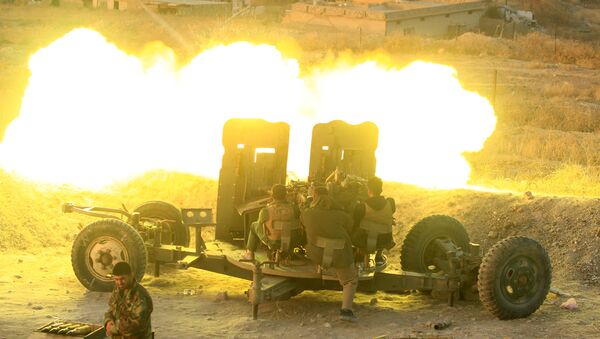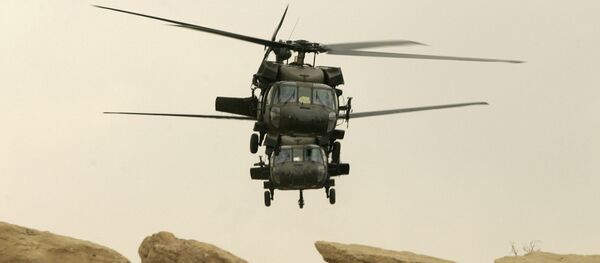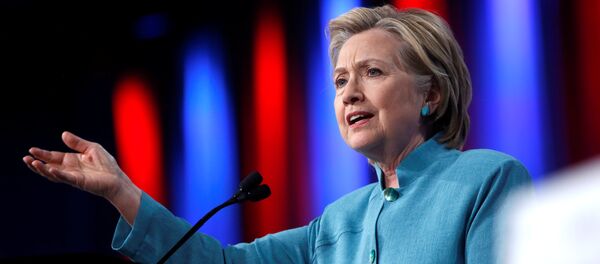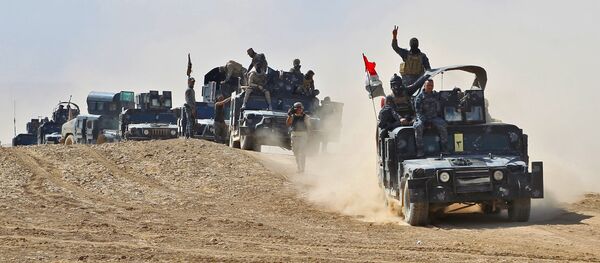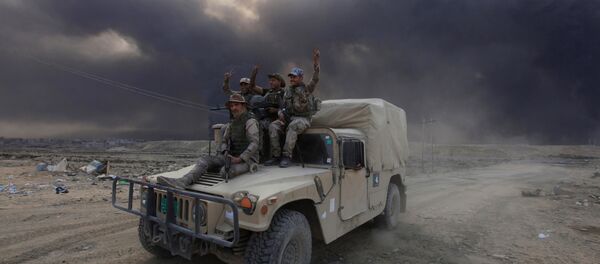On Monday, a full-scale operation aimed at liberation of the city was announced by Iraqi Prime Minister Haider Abadi. The operation is currently in progress, with the Iraqi Army and Kurdish Peshmerga forces advancing in the city's outskirts with aerial support from the US-led international coalition.
Despite the fact that the awaited liberation of the city on the Tigris river will be extremely difficult with Daesh managing to build up its defenses, actively using massive amounts of US ammunition left by the fleeing Iraqi forces back in 2014 and having booby traps and suicide bombers in its tactics arsenal, even if the city is freed, Daesh's existence will not cease neither in Iraq nor is Syria.
Liberated Mosul
Chris Doyle, the Director of the Council for Arab-British Understanding (Caabu) think tank, told Sputnik on the same day that Raqqa and Mosul should be liberated as soon as possible.
"Allowing ISIS [Daesh] to remain in such cities would have serious consequences and make it easier for the group to orchestrate attacks elsewhere," Doyle explained.
Doyle went further, explaining that the liberation alone is not enough to bring stability and peace to the region.
"The liberation of Mosul is certainly a realistic possibility but there is no guarantee that the city will be safe and flourishing as there will a major challenge to ensure that all its various communities are brought back together again, peace and security restored as well as essential services. A political program in Iraq that ensures all communities have a clear and credible stake in the political system is vital," Doyle said.
"No one can say for sure how long the operation will last. According to the Kurdish government, it can take around two months. But Mosul is a big city, there are 5,000 — 6,000 ISIS members there, and no one can predict how they will behave," Duerre said.
In comparison, Baghdad has provided 30,000 fighters to recapture Mosul while Kurdish Peshmerga allocated a 4,000-strong force.
Iraqi Prime Minister Haider Abadi cautiously noted on Tuesday that Baghdad would not like to set a deadline for the offensive.
Erbil-Baghdad Dilemma
The battle of Mosul features three key players — Daesh, the Iraqi government with the US-led coalition and the Kurdish Peshmerga forces. Each side in the conflict desires to see a different future for the region.
Before the events of 2014, Iraqi Kurds enjoyed an autonomy within the boundaries of the Autonomous Region which was recognized by official Baghdad back in 2005. The situation changed dramatically when Daesh seized vast territories including the city of Fallujah close to Baghdad.
In contrast to the initial retreat of Iraqi forces, the country's Kurds not only managed to defend their territories, but recaptured originally Iraqi territories from the hands of Daesh terrorists.
On Tuesday, the head of the Kurdish Regional Mission to the European Union, Delavar Ajgeiy, told Sputnik that the anti-Daesh forces demonstrate high level of coordination in the operation.
Ikbal Duerre explained why such a level of cooperation became a reality.
"Kurdish fighters and Baghdad have reached a very high level of coordination. That became possible because before the operation started, the Kurds and Baghdad had agreed that the Kurds can take territories that used to be disputable. Thus, during the two years of fighting against ISIS [Daesh] the Kurds have taken many disputable territories. Baghdad agreed, therefore the Kurds help now in this operation," Duerre said.
Duerre added that despite the fact that the operation is well prepared, some disputes remain.
"There are some confessional disputes. As neither the Kurds, nor Turkey want to allow Shia forces to take part in the operation. But Iran insists on participating," Duerre added.
On Thursday, Iraqi's Abadi specially noted that no foreign ground forces are fighting in the Mosul operation. According to the prime minister, the offensive has shown the unity of the Iraqi people.
